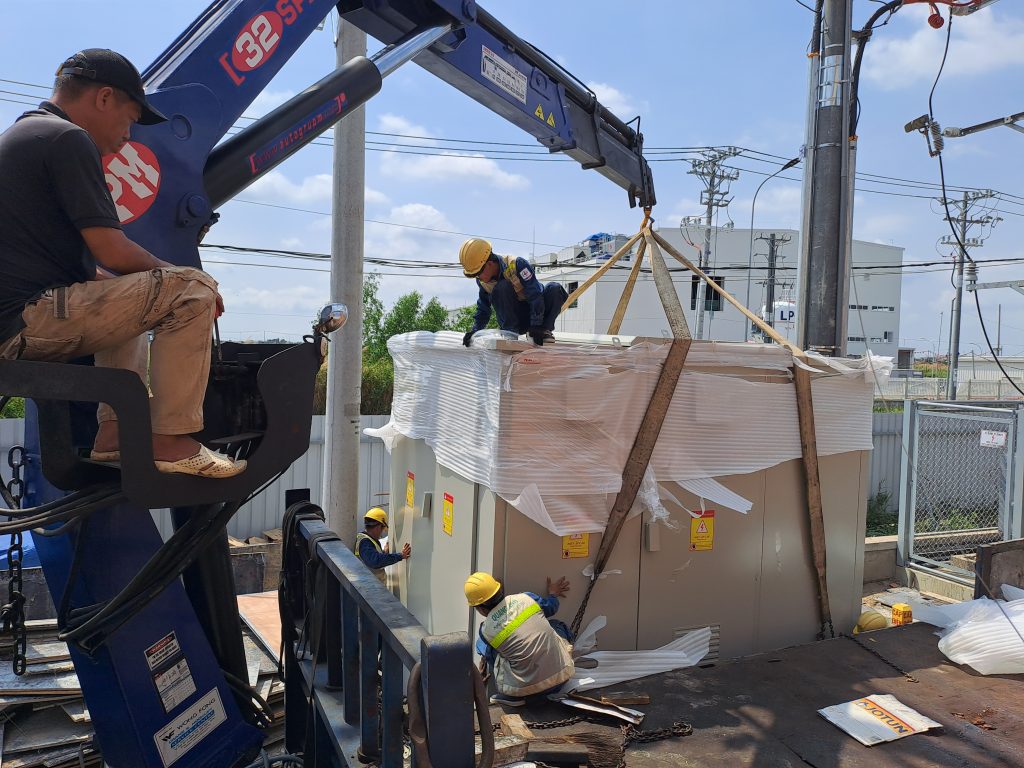News
Legal Procedures for Building Electric Vehicle Charging Stations in Vietnam
Building a electric vehicle charging station in Vietnam requires strict adherence to legal procedures, including necessary documents, permit application processes, location and safety regulations, and additional procedures for charging services.
Necessary Documents for Building Electric Vehicle Charging Stations
Building an electric vehicle charging station in Vietnam requires specific legal documents to legitimize the construction. This includes the necessary construction permits, certification for fire safety (PCCC), and documents related to electricity regulations. These documents not only ensure the project’s compliance with legal requirements but also avoid legal risks during station operation.
When constructing electric vehicle charging stations, preparing the necessary documents is a top priority to ensure the legality and rights of the business. Below are the required documents for building an electric vehicle charging station under regulations in Vietnam.
1. Land Use Rights Certificate
- To ensure legal land use rights for the electric vehicle charging station, the enterprise needs a land use rights certificate or a land lease document.
2. Enterprise Documents
- Documents proving the legal status of the investing entity, including:
- Business registration certificate.
- Investment certificate or decision.
3. Personal Documents
- Documents such as national ID cards and power of attorney (if applicable) are mandatory for individuals involved in the construction of the charging station.
4. Construction Permit
- A construction permit is needed to confirm the project’s compliance with the overall planning and established construction standards. This regulation is part of the Construction Law 2014 and related documents such as Decree No. 35/2023/ND-CP.
5. Fire Safety and Environmental Protection
- Ensure fire safety with a document confirming that appropriate firefighting equipment and procedures are in place.
- An environmental protection registration certificate is mandatory to minimize the impact on the environment from the electric vehicle charging station.
6. Other Documents
- Confirmation of conformity with planning documents ensures the station is compatible with the surrounding area.
- Contracts or handover minutes for locations such as apartments or businesses are necessary.
Throughout the project implementation process, investors must fully comply with investment construction principles. Complying with technical standards not only ensures quality but also guarantees safety during operation.
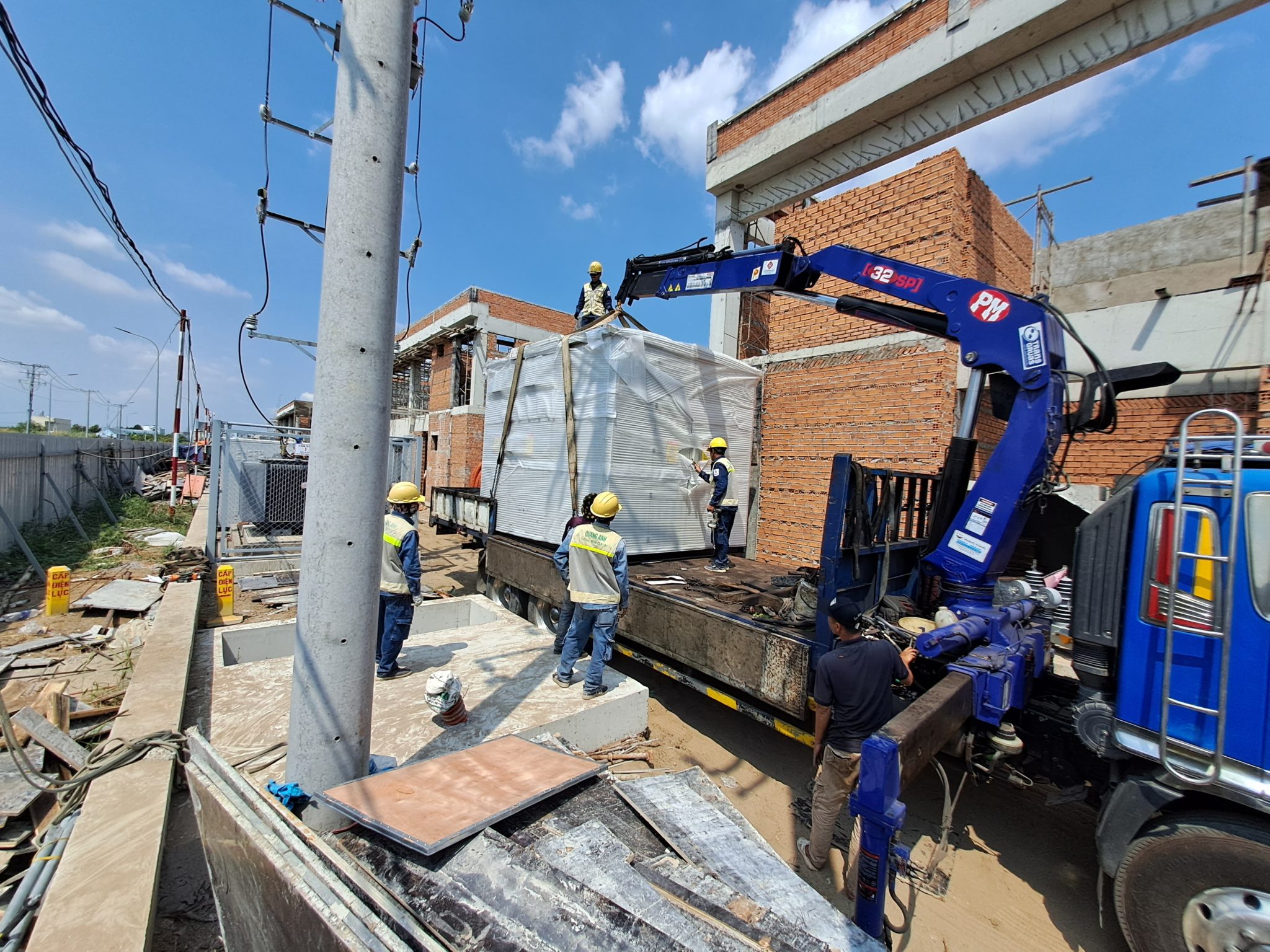
Permit Application Process for Building Electric Vehicle Charging Stations
The application process for building a charging station in Vietnam starts with preparing a complete dossier, including the necessary documents mentioned and a detailed project plan. The next step is to submit an application to the local construction management agency. This process requires deep knowledge of legal regulations and support from professional consulting units to ensure smooth and timely permit issuance.
Construction Permit
- Exemption from construction permits: Electric vehicle charging stations are not exempt from construction permits. This follows the provision in Clause 2, Article 89, Construction Law 2014, amended by Law No. 62/2020/QH14.
- Procedure: Must follow the law on current construction permit issuance. Specific conditions are regulated in Article 91 and Article 92, Construction Law 2014. Permits must align with planning and land use purposes under Decree 35/2023/ND-CP.
Technical and Safety Requirements
- Fire and explosion safety: Compliance with fire safety requirements is necessary. Charging stations must have an alarm system and automatically cut off power in case of fire alarms.
- Charging equipment: Charging equipment needs standard certification to ensure disconnection in case of electric shock or fire risk.
- Installation location: Charging stations can only be arranged in designated areas that have been evaluated and approved.
Planning and Deployment
- Legal basis: The Ministry of Construction issued Official Letter 4338/BXD-HDXD and Decision 766/QD-BXD to plan charging stations and ensure a legal basis.
- Many regulations will be completed to support deployment.
General Notes
- Do not affect the load-bearing structure and comply with fire safety in the existing project.
- No specific industry code for charging station business in Vietnam’s economic sector system according to Decision No. 27/2018/QD-TTg.
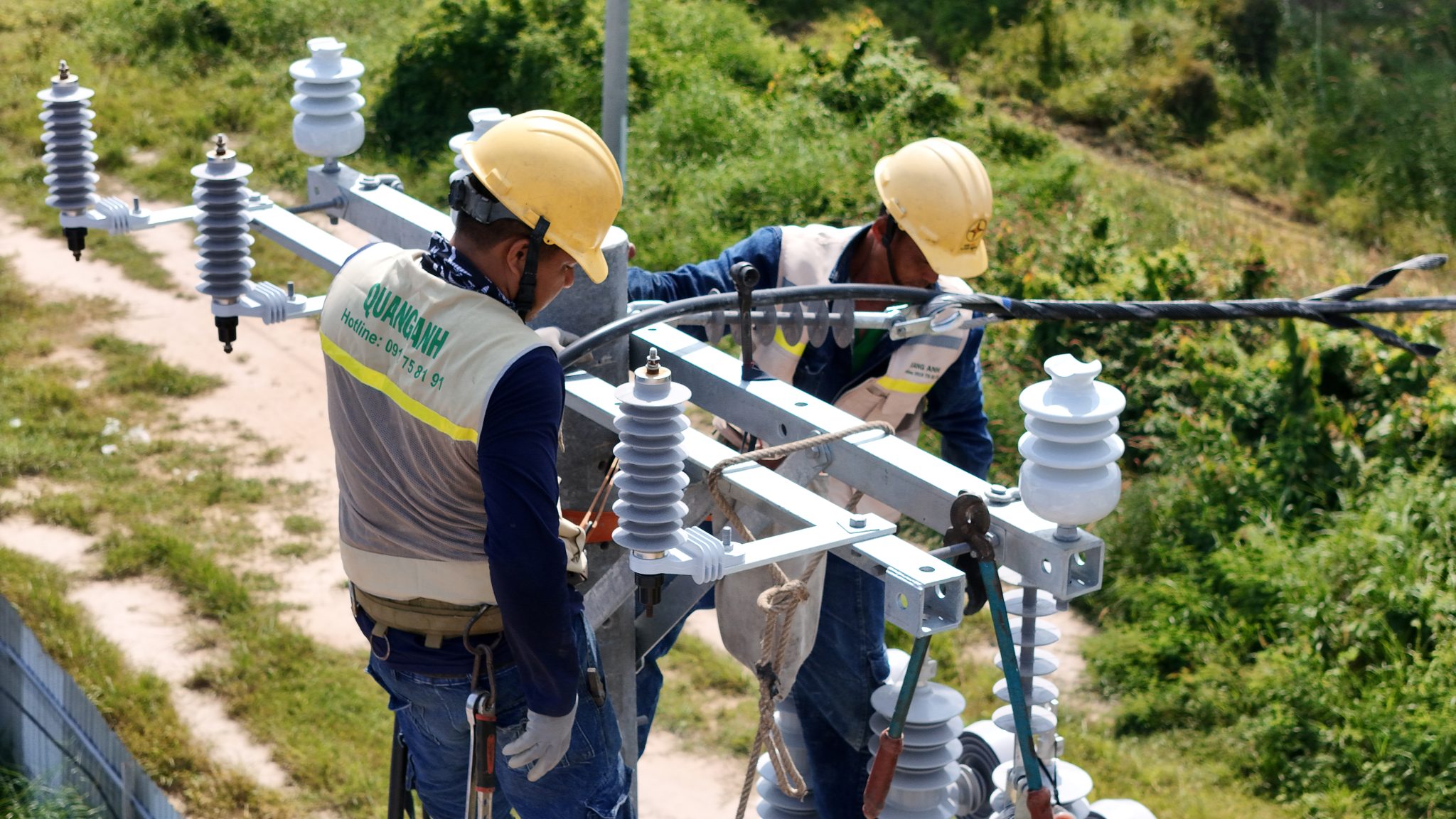
Location and Safety Regulations for Installing Electric Vehicle Charging Stations
The location for installing electric vehicle charging stations must comply with state regulations on planning and land use. Additionally, to ensure the highest level of safety, charging stations must have fire safety certifications and be periodically inspected according to the standards of the relevant electricity authority. The safety of users and vehicles is always a top priority in the installation and operation of electric vehicle charging stations.
In the context of the strong development of the electric vehicle system in Vietnam, planning the location of charging stations plays an essential role in ensuring safe and efficient operations. Electric vehicle charging stations need to be installed following approved plans and designs to optimize space and ensure traffic safety.
- Planning and design: According to regulations, stations must be arranged in appropriate areas to minimize negative impacts on the environment and traffic safety.
- Rest stops: According to Circular 09/2024 of the Ministry of Transport, large area type 1 and 2 rest stops require charging stations to promote a nationwide charging network.
- Parking areas: Charging stations should only be installed in permitted areas to ensure safety and proper use of existing space.
Regarding fire safety and technical requirements, electric vehicle charging stations must meet strict standards:
- Technical and safety requirements: Stations must meet standards for fire and explosion prevention and electrical equipment safety.
- No impact on building structure: When installing at existing structures, it must be assured that the installation does not impact the load-bearing structure to avoid collapse or damage.
- Fire prevention and environmental protection: Fire prevention and environmental protection regulations must always be prioritized to ensure sustainable and safe operations.
These regulations ensure that the development of electric vehicle charging stations in Vietnam will be done in a way that meets both safety and environmental protection requirements, contributing to the transition to a clean and sustainable industry.
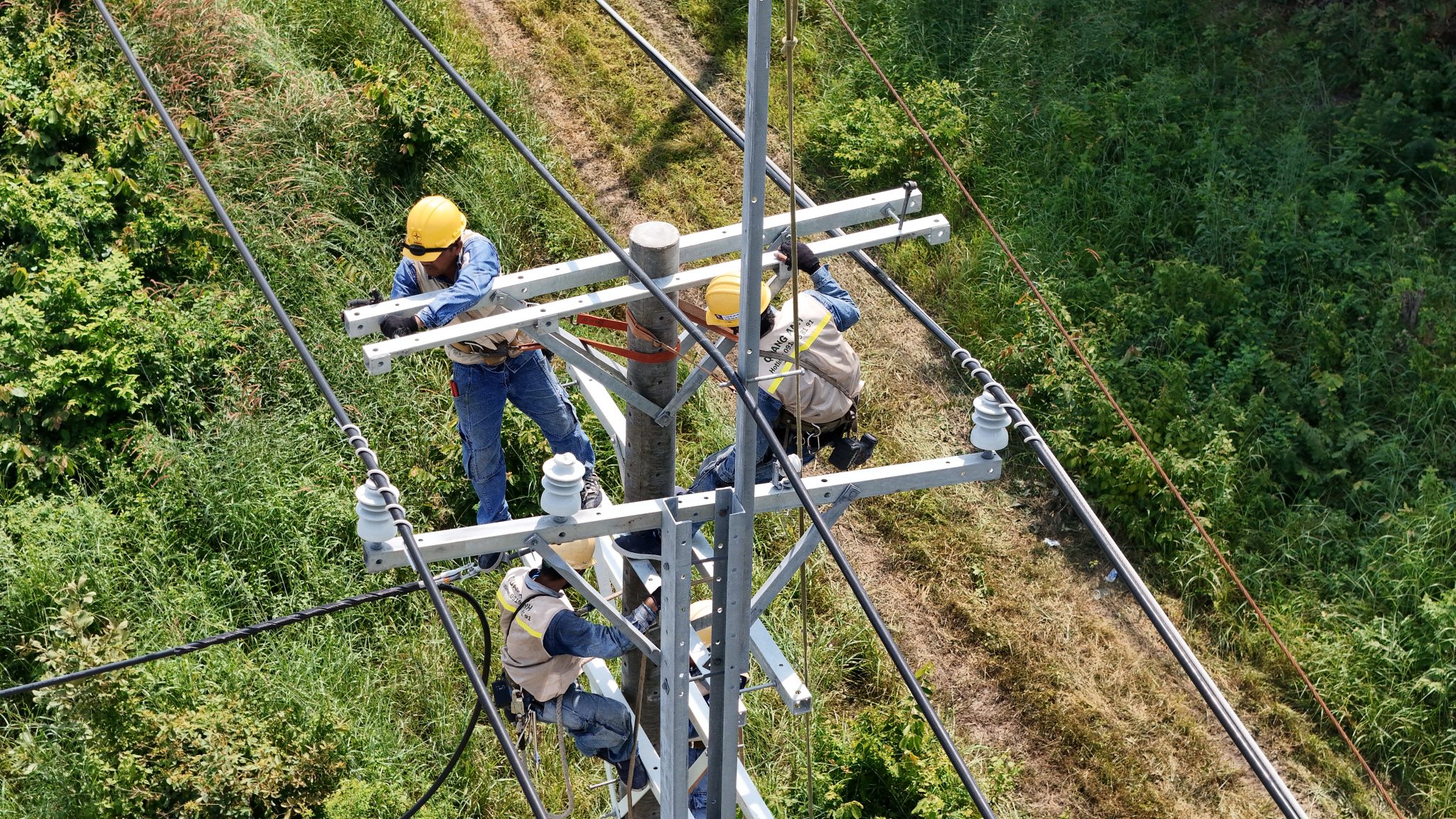
Additional Procedures for Electric Vehicle Charging Services
Besides basic construction procedures, providing electric vehicle charging services also requires additional quality and safety certifications for the electricity supply service. This requires close cooperation with electricity management agencies to ensure that the electrical infrastructure meets the usage demands. Service management and operation must also follow electrical environment regulations to aim for sustainable development.
Supplementing procedures for electric vehicle charging services involves not only infrastructure construction but also requires a series of legal regulations and technical standards to ensure efficiency and safety.
Legal Procedures
- **Construction Permit**: To install an electric vehicle charging station, detailed technical drawings and land use or ownership certificates are required. This is necessary for the station to operate legally and in compliance with regulations.
- **Business License**: A business license in the field of electric charging is required to ensure eligible operation within this market segment.
- **Electricity Supply Contract**: A contract with the utility company is mandatory to ensure a safe and stable power supply for the charging station.
- **Fire Safety Certification**: Certification from the relevant authorities ensures compliance with fire safety regulations.
- **Electrical System Safety Certification**: These certifications are mandatory to ensure the electrical system’s safety at the charging station.
Technical Requirements
- **Compliance with Technical Standards**: Strict compliance with electrical and fire safety standards is essential in the installation and operation of charging stations.
- **Design and Installation of Electrical Systems**: Ensures assurance from design to installation so that the whole electrical system meets demand for capacity and stability.
- **Environmental Protection**: All activities related to electric vehicle charging services must also comply with environmental protection and waste management regulations.
Trends and Support
- **Policy Support**: State and organizational policies may include tax support or other investment incentives to encourage expanding the charging station network.
- **Green Development Trend**: Electric vehicle charging services are part of the green mobility trend, contributing to carbon emission reduction and environmental protection.
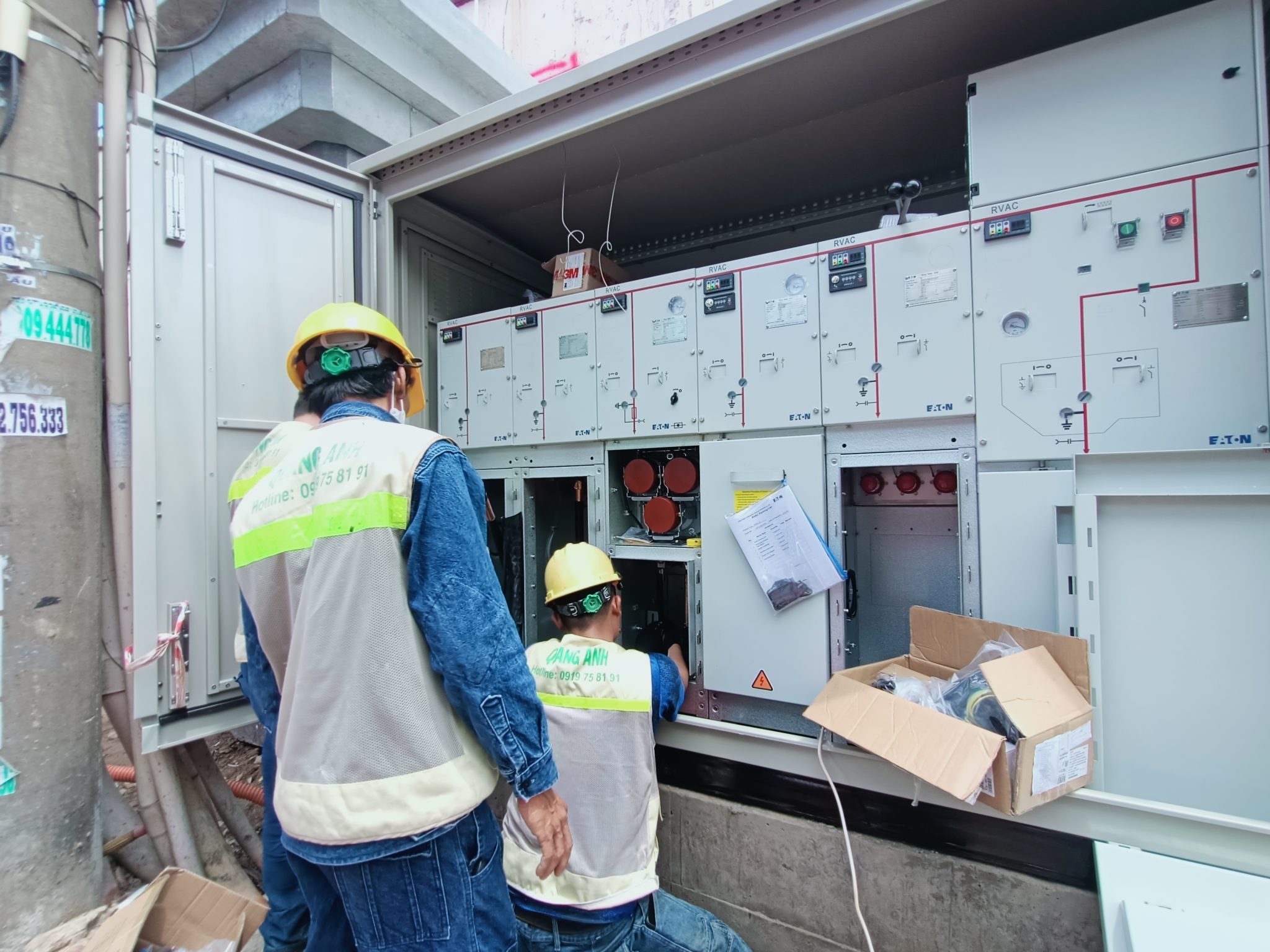
Building electric vehicle charging stations provides significant benefits in terms of technical, investment, and strategic perspectives. It not only meets energy needs for green vehicles but also opens up business opportunities in this emerging field in Vietnam.
To ensure your electric vehicle charging station operates legally and effectively, contact QuangAnhcons at +84 9 1975 8191.
QuangAnhcons provides comprehensive solutions for the construction and operation of electric vehicle charging stations. We are committed to meeting all legal and technical requirements, ensuring maximum quality and customer satisfaction.

 Tiếng Việt
Tiếng Việt 简体中文
简体中文 Deutsch
Deutsch 日本語
日本語 한국어
한국어 ไทย
ไทย Русский
Русский Français
Français
